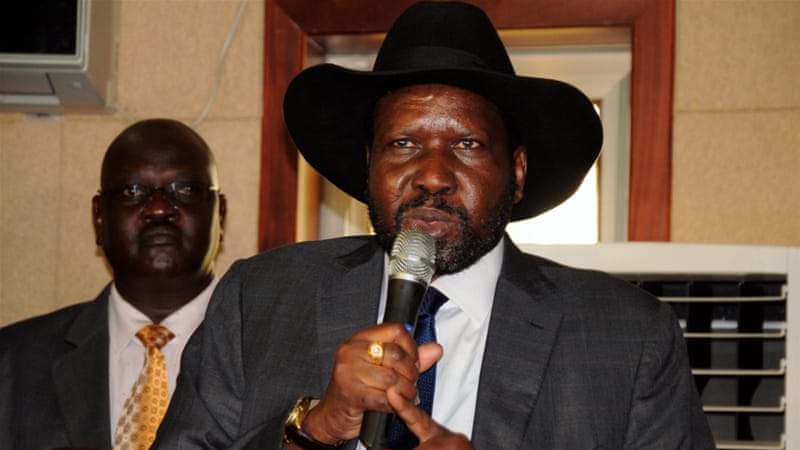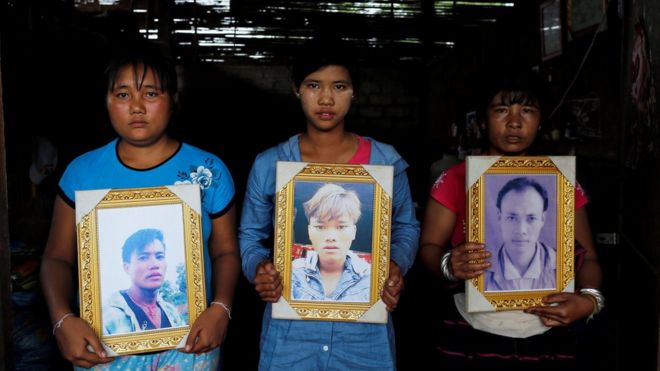By Samantha Netzband
Impunity Watch Reporter, Africa
JUBA, South Sudan–The South Sudanese government is planning on taking legal action against the Sultry group after the publication of what they believe is an incorrect corruption report. The Sultry group was founded by American actor George Clooney and activist John Prendergast. The group was also a key player in gaining South Sudan’s independence.
President Kiir seen giving a speech. (Photo Courtesy of Aljazeera)
The report, which was published by the Nation Mirror, alleges that President Kiir and opposition leader Riek Machar amassed wealth throughout the time of the Sudanese conflict. This wealth includes luxury cars, foreign properties, and stakes in oil and business ventures. Both President Kiir and Riek Machar’s spokespeople have said that these allegations are “rubbish”. This then lead to the closing of the Nation Mirror and the pursuance of a lawsuit.
There are already calls to reopen the Nation Mirror, the newspaper that published the report. Given the lack of independent and critical newspapers in the region those in the media in South Sudan would like to see the newspaper reopened.
Those who belief the report are suggesting that the United States threaten sanctions until reform is made. This stems from the fact that George Clooney, the partner in the Sentry group, is an American actor. Countries on the outside looking in are taking these allegations seriously considering war profiteering is a serious crime, and the conflict in South Sudan has displaced a million people.
For more information, please see:
Al Jazeera – South Sudan to take legal action after corruption report – 13 September 2016
CNBC Africa – South Sudan: Actor George Clooney against the Kleptocrats – 17 September 2016
Fox News – South Sudan challenges US watchdog’s report on corruption – 17 September 2016









